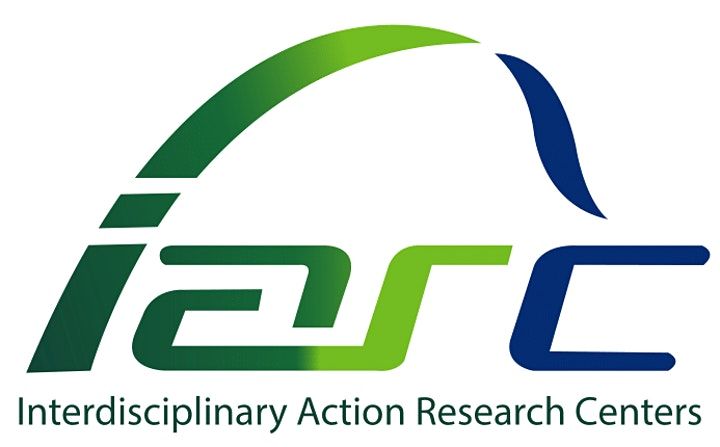2nd International Conference on Decreasing Recidivism: Closing the Cradle-to-Prison Pipeline
Schedule
Wed Jun 22 2022 at 07:30 am to Thu Jun 23 2022 at 04:30 pm
Location
Harrisburg Area Community College | Harrisburg, PA
2nd International Conference on Decreasing Recidivism Closing the Cradle-to-Prison Pipeline
The 2nd International Conference on Decreasing Recidivism is currently accepting proposals for papers and presentations that will expand our collective understanding of the cradle-to-Prison pipeline and explore evidence-based and practical approaches to prevent children from entering the pipeline. Practitioners and academics from all disciplines are invited to share their research and pragmatic strategies relevant to closing the pipeline. Specifically, the conference will bring together an international group of scholars and practitioners to explore the multiple threats, challenges, and emerging opportunities associated with closing the school-to-Prison pipeline.
Rationale
Research has shown that children from low-income communities and those with adverse childhood experiences (e.g., neglect, domestic violence, parental incarceration, or a parent with addiction or mental illness) experience significant educational setbacks that may influence outcomes throughout adulthood. These Adverse Childhood Experiences (ACEs) have been shown to affect the developing brains and bodies of children. For children with four or more ACEs, the odds of having learning or behavioral problems in school is 32 times higher than those with no adverse childhood experiences.
These patterns are even more troubling when coupled with evidence that education systems and institutions have been heavily influenced by criminal justice policies and narratives, leading to the criminalization of behaviors that were previously dealt with through school discipline. For many young people– particularly youth of color, low-income youth, and students with disabilities – the lines between the education system and the justice system have become blurred.
Many scholars have described the cradle-to-Prison pipeline as an amalgamation of several different trends, including among many others, the overrepresentation of students of color in special education; the rise of zero-tolerance school discipline policies; and test-based accountability systems that push out low performing students. They further argue that the pipeline functions on multiple levels, ranging from social and institutional racism, narratives around punishment and reform, policies that drain resources from schools, and societal discourses of racial inferiority and punishment.
Track I: Closing the Cradle-to-Prison Pipeline (C2PP): Current Threats, Challenges, and Opportunities
- What current threats must be addressed to dismantle the C2PP?
- Are there pragmatic solutions to tackle the challenges confronting children that increase the likelihood of entering the C2PP?
- Could information and communication technologies provide collaboration opportunities for academics and practitioners to design concrete strategies to close the C2PP?
Track II: Adverse Childhood Experiences and Determinants of Justice Involvement
- Do public and charter school systems provide appropriate learning environments for children who have experienced trauma?
- Do school disciplinary policies push traumatized children into the C2PP?
- Track III: Policies and Systems that Create and Disrupt the Cradle-to-Prison Pipeline
- Do funding inequality and systemic racism in education contribute to the rise of juvenile offenders?
- Are state and federal educational policies effective at dismantling the C2PP?
Track IV: Marginalized Communities, Endemic Crime, and Trauma
- Is there empirical evidence highlighting trauma as an impediment to social development in children?
- How have state and federal policies addressed the root causes of child and family poverty? What relationships exist between individual and community characteristics, the C2PP, and outcomes for children?
Track V: Community-Based Practices
- What evidence exists to support programs and practices currently being employed to address the C2PP in marginalized communities?
- How has research at higher education institutions been translated into practices intended to disrupt the C2PP?
- Is there empirical evidence of civil society, nonprofit, or non-governmental organizations playing an advocacy role in efforts to dismantle the C2PP?
- Have Public-Private Partnerships fostered sustainable community development that minimizes the effects of the C2PP?
Conference Format
The conference planning committee has focused its efforts on organizing a hybrid conference to allow presenters to engage with the conference theme and other attendees, whether in-person or remote. Since the COVID-19 pandemic is constantly changing, we also recognize the need to have an alternate
plan. As such, we will closely monitor the prevailing health conditions in the late spring and early summer of 2022. Should health and safety considerations require it, we will hold the conference in a fully remote format. We expect to make a final decision by mid-May.
If you have questions, please reach out to either of the program committee chairs, Dr. Gedeon M. Mudacumura, Founder & CEO, Interdisciplinary Action Research Centers ([email protected]) or Dr. Gary R. Kirk, Associate Provost, Dickinson College, Carlisle, PA ([email protected]).

Where is it happening?
Harrisburg Area Community College, 1 HACC Dr, Harrisburg, United StatesEvent Location & Nearby Stays:
USD 50.00 to USD 6000.00
